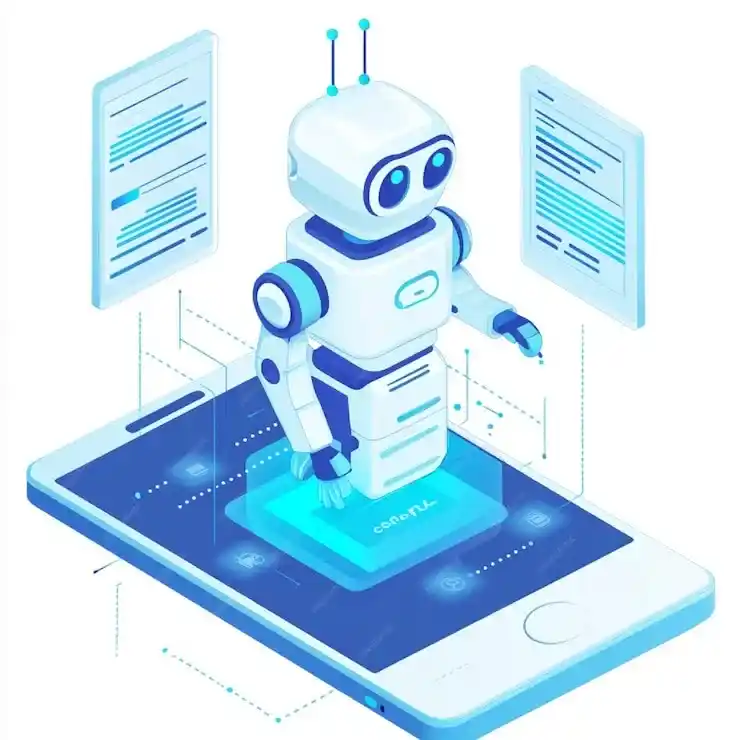Table of Contents
In today’s fast-moving workplaces, the role of HR teams is more important than ever. From managing employee needs to handling recruitment and performance, HR teams often juggle multiple tasks. But what if there was a smarter way to make things easier and faster? That’s where HR Virtual Assistants come in.
An HR Virtual Assistant is like a super-smart helper powered by artificial intelligence. It can answer questions, handle routine tasks like scheduling interviews or managing leave requests, and even help improve employee engagement. These assistants not only save time but also ensure employees get quick, accurate, and 24/7 support.
What are HR Virtual Assistant?
HR Virtual Assistant are AI-based tools that have been created to interact with employees, provide information about the human resource, automate routine work, and enhance service delivery. They make use of NLP to understand and answer questions. As a part of modern VA services, these assistants are transforming how HR teams operate.
Importance in Modern HR
As businesses grow and the expectations of employees increase, the pressure on HR departments to provide quick, accurate, and 24/7 support increases. This is where HR Virtual Assistant become important in alleviating the burden by providing automation and efficiency in handling HR queries.

Benefits of HR Virtual Assistant
- Natural Language Processing (NLP): NLP is what enables the chatbots to interpret and respond to queries from employees in human language: That means it makes interactions smoother and makes the employees feel that they’re talking to a real person rather than a bot.
- Integration with HR Systems: HR chatbots can also be integrated with other systems used in HR like the HRIS, payroll, applicant tracking systems(ATS), and learning management systems(LMS). This integration helps transfer data without any obstacles to make the chatbot work as a source of relevant information.
- Personalized Employee Interactions: Based on employee profiles, chatbots can offer customized responses regarding benefits, time-off requests, and performance feedback, ensuring the interactions feel personal and relevant.
- Data Analytics and Reporting: Chatbots can collect valuable data from employee interactions (e.g., satisfaction, common queries, and engagement trends). HR teams can use this data to optimize HR practices, improve employee engagement, and monitor HR performance.
Applications of HR Virtual Assistants
- Employee Onboarding: Simplifies onboarding by automating paperwork, training, and FAQs.
- Self-Service: Allows employees to access information like leave balances or request time off.
- Performance Management: Supports goal tracking, feedback, and performance reviews.
- Employee Engagement: Conducts surveys and monitors satisfaction.
- Recruitment: Automates candidate screening, scheduling, and follow-ups.
- Compliance: Guides employees on policies and monitors adherence to legal regulations. In healthcare organizations, these systems can support HIPAA texting compliance when handling employee health information or benefits communications.
Future of HR Virtual Assistants
- AI Integration: Predictive analytics helps anticipate employee needs and recommend personalized solutions. Machine learning enhances problem-solving abilities over time.
- Continuous Learning: Virtual assistants improve with every interaction, ensuring better understanding and contextual responses.
- Emerging Trends: Integration with technologies like blockchain for secure data management. Multi-channel support, including mobile, email, and voice interfaces.

Examples
1. Workday Assistant
A virtual assistant integrated with the Workday HR platform, designed to simplify and enhance employee and manager interactions with HR systems.
Features
Provides instant answers to employee queries related to HR policies, benefits, and payroll.
Assists managers in tasks like approving requests and tracking team performance.
Use Cases
Helps employees access HR services through a conversational interface.
Streamlines workflows for HR teams and enhances decision-making capabilities.
2. Leena AI
An AI-powered HR Virtual Assistant focusing on automating HR operations and enhancing the employee experience.
Features
Automates processes like onboarding, leave management, and performance feedback.
Supports personalized employee interactions with real-time data from HR systems.
Use Cases
Facilitates onboarding by guiding new hires through paperwork and company policies.
Improves employee engagement through pulse surveys and timely feedback collection.
3. XOR
An AI-driven recruitment assistant designed to automate and optimize hiring processes.
Features
Handles tasks like candidate sourcing, resume screening, and scheduling interviews.
Engages with applicants through multiple channels, including SMS and chat.
Use Cases
Helps HR teams reduce the time-to-hire by automating repetitive tasks.
Sends automatic updates and follow-ups to candidates, keeping them engaged throughout the recruitment cycle.
Conclusion
HR Virtual Assistants have revolutionized the way organizations manage their workforce by seamlessly blending advanced AI capabilities with human-centric HR functions. These intelligent tools are no longer just supplementary systems but essential assets for businesses striving to optimize efficiency, enhance employee experiences, and remain competitive in a rapidly evolving workplace.
By automating repetitive tasks such as answering FAQs, managing leave requests, and assisting in recruitment processes, HR Virtual Assistants free up valuable time for HR professionals to focus on strategic initiatives that drive business growth. Moreover, their ability to provide 24/7 support, integrate with existing HR systems, and deliver personalized interactions fosters a more engaged and satisfied workforce.
As these tools continue to evolve, incorporating cutting-edge technologies like machine learning and predictive analytics, their potential to handle complex tasks, predict employee needs, and transform HR operations will only expand. However, to harness their full potential, organizations must address challenges such as data security, employee trust, and the balance between automation and human touch.
FAQs
1. What does an HR virtual assistant do?
Remote HR Assistant is when you get a person who works for the HR department of your company from that person’s own office or home. It can help your HR department via payroll administration, report generation, recruitment management activities, etc. Not only that, but they also constantly touch base with your employees regarding the operations and happenings.
2. What Are the Key Responsibilities of a Virtual Assistant?
A virtual assistant will schedule and attend meetings for the most part. In addition to maintaining calendars and making travel bookings, they would also conduct online research, compile reports and distribute them, handle various administrative tasks, and update our company website.
3. What Does Virtual HR Entail?
Employees gain easy access to HR as and when they require it online. Instead of always interacting with an HR person, an employee can use a self-service platform to find what they want, that’s how Virtual HR facilitates access for employees to HR services and tools online 24/7.